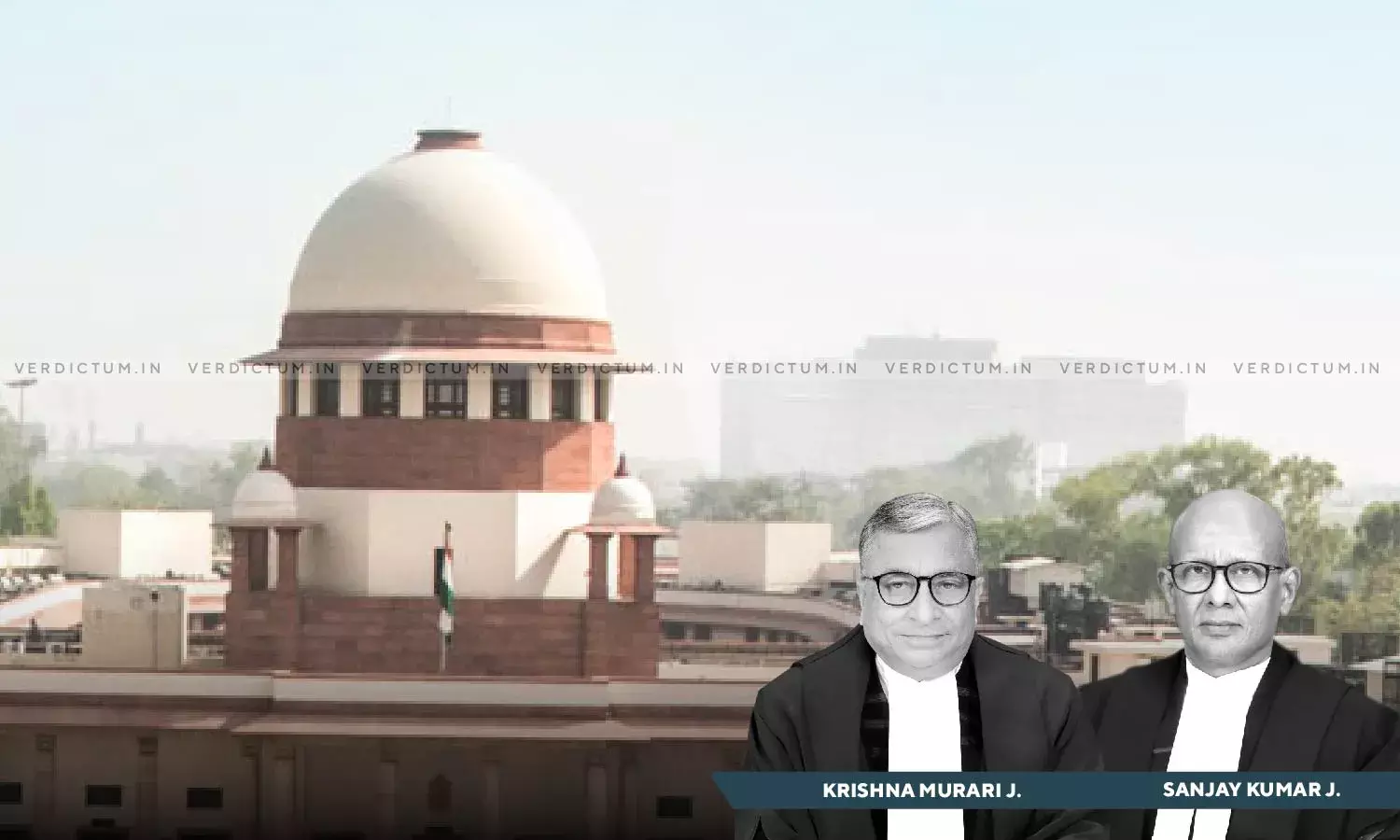A Person Cannot Have Benefit Of Instrument While Questioning It: Apex Court Reiterates While Dismissing Appeal Of FCI Management

The Supreme Court while dismissing the appeal filed by the Management of the FCI (Food Corporation of India) has reiterated that a person cannot have a benefit of an instrument while questioning the same.
The two-Judge Bench comprising Justice Krishna Murari and Justice Sanjay Kumar held, “In Union of India and others vs. N. Murugesan and others [(2022) 2 SCC 25], this Court pointed out that the phrases ‘approbate’ and ‘reprobate’ mean that no party can be allowed to accept and reject the same thing, as the principle behind the doctrine of election is inbuilt in the concept of approbate and reprobate, that is, a person cannot be allowed to have the benefit of an instrument while questioning the same. It was noted that an element of fair play is inbuilt in this principle and it is a species of estoppel dealing with the conduct of a party.”
The Bench said that having allowed the workmen to put in regular service to its own benefit for over two decades, the management can no longer claim an indefeasible right to continue with and canvass its challenge to the Award, merely because it made its compliance with the Award conditional long ago.
Advocate Udita Singh appeared for the appellant while Advocate Ajit Pudussery appeared for the respondents.
In this case, by an order issued under Section 10(1)(d) of the Industrial Disputes Act, 1947, the Ministry of Labour, Government of India, referred the industrial dispute raised by the Executive Staff Union of Food Corporation of India, espousing the cause of 21 casual workers, for adjudication and it was transferred to the Central Government Industrial Tribunal. The Tribunal found that the 21 workmen in question were engaged as casual workers by the FCI at Patna and their retrenchment was void, as they were neither given notice nor paid compensation.
The Tribunal passed an award holding that the action of the management of FCI in retrenching the services of such workmen was not justified and directed the management to reinstate them and regularize their services in Class-IV posts, and to pay them 75% of their back wages, within a time frame. Being aggrieved by the said award, the management of FCI filed a plea before the Jharkhand High Court which was dismissed.
The Supreme Court in view of the above facts noted, “Given this factual scenario, we are of the opinion that the learned Judge of the Jharkhand High Court was perfectly justified in dismissing the writ petition on the grounds that he did, thereby upholding the Award. … In the case on hand, the management of FCI filed a writ petition challenging the Award passed by the Tribunal but having secured conditional interim relief therein, the management chose to implement the impugned Award though it was under no compulsion to do so. As pointed out hereinbefore, the management did not stop short at just reinstating the workmen in service but went further and absorbed them in regular service.”
The Court further noted that such absorption in service was not at all required under the interim order and was, therefore, squarely attributable to the will and volition of the management of FCI itself.
“A party to a proceeding cannot be permitted to challenge the same but thereafter abide by it out of its own free will; garner benefit from it; get the opposite party to effectively alter its position; and then press its challenge after the passage of a considerable length of time”, observed the Court.
The Court said that it is no longer open to the FCI management to seek to turn back the clock and that the crucial aspects were lost sight of by the Division Bench while dealing with the management’s appeal.
“… we are not inclined to alter the position obtaining for over two decades, by accepting the legally weighty but essentially pedantic view taken by the Division Bench, ignoring the factual position”, held the Court.
Accordingly, the Apex Court dismissed the appeal.
Cause Title- Their Workmen through the Joint Secretary (Welfare), Food Corporation of India Executive Staff Union v. Employer in relation to the Management of the Food Corporation of India & Anr.


